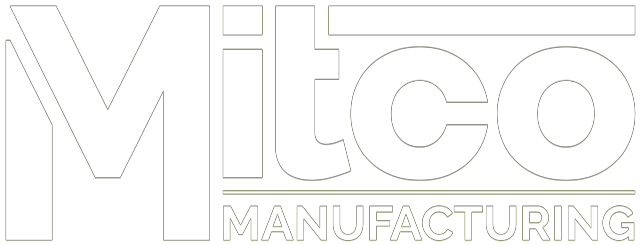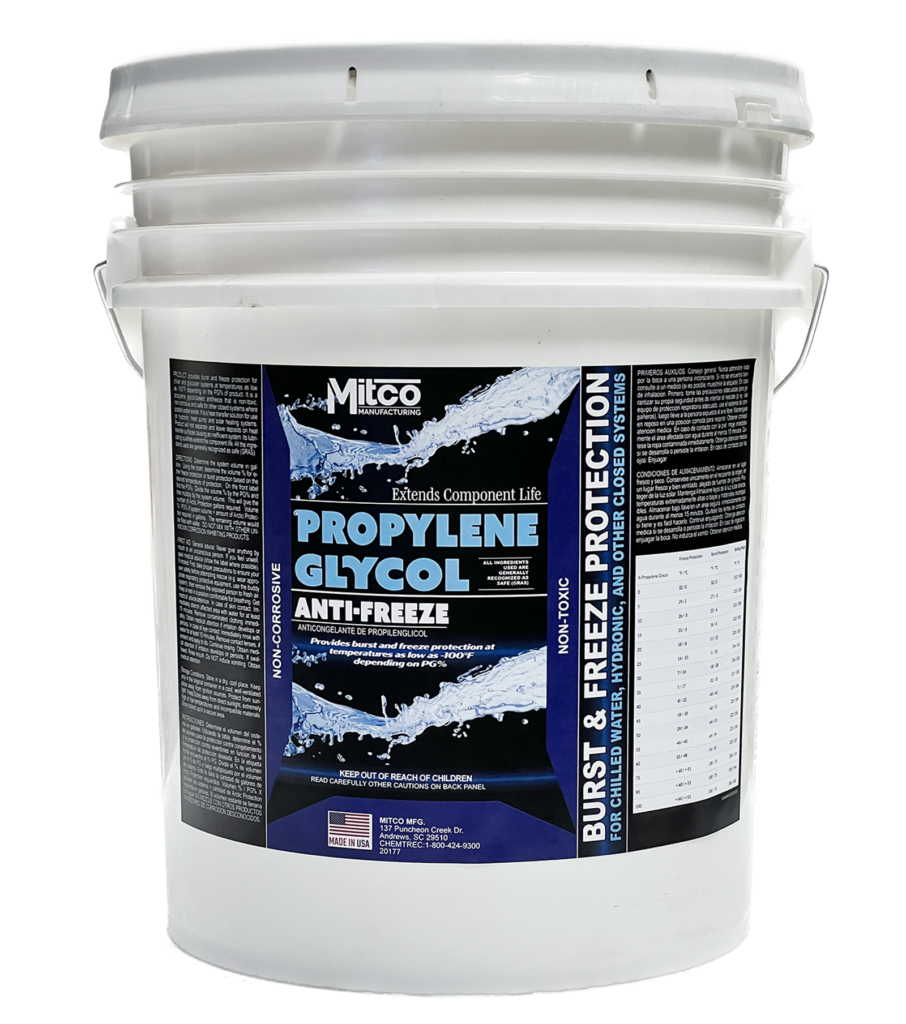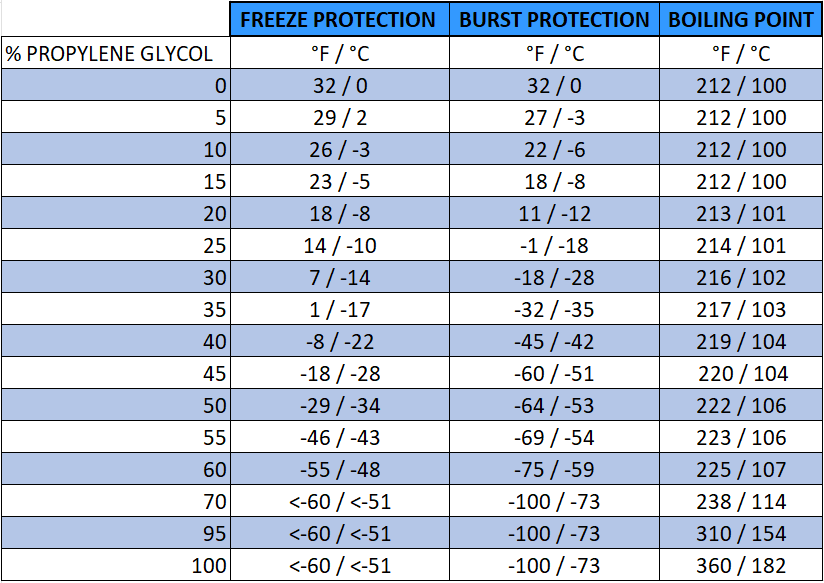
PROPYLENE GLYCOL
Anti-Freeze | Freeze & Burst Protection
Non-Toxic | Non-Corrosive | Aluminum Safe

5 & 55 GALLONS
Mitco’s Propylene Glycol is non-corrosive and safe for closed systems where potable water exists. It is a heat transfer solution for use on hydronic, heat pump and solar heating systems. Product will not separate and leave deposits on heat transfer surfaces. Its lubricating qualities extend component life. Provides burst and freeze protection at temperatures as LOW as -100°F depending on PG% (see chart on bottom of page). All ingredients used are generally recognized as SAFE (GRAS).
REFERENCE:
PART # F5-5-60 (5 Gallon), F5-55-60 (55 Gallon) - 60%
PART # F5-5-95 (5 Gallon), F5-55-95 (55 Gallon) - 95%
OPTIONS:
- 5, 55, 275 gallon options
- CUSTOM COLORS & PERCENTAGES
- Custom Blends Typically Take 3-5 business days depending on the volume of the order. Custom orders require shipping zip code, color, percentage, quantity in gallons, and perferred container size of 5,55,275.
Email: sales@mitcomfg.com
GLYCOL CALCULATOR
SYSTEM VOLUME CALCULATOR
Inside Pipe Diameter:
Inches
Inches
Pipe Length:
Feet
Feet
Total System Volume =
CONCENTRATION ADJUSTMENT CALCULATOR
Volume of the System:
Gallons
Gallons
Current System Percentage:
%
%
Desired Percentage:
%
%
Gallons to be removed from system:
Gallons of water to be added to system:
Gallons of concentrate to be added to system:
NOTE: CONCENTRATION ADJUSTMENT CALCULATOR BASED ON 95% CONCENTRATION TO BE ADDED
Freeze & Burst Protection Chart

